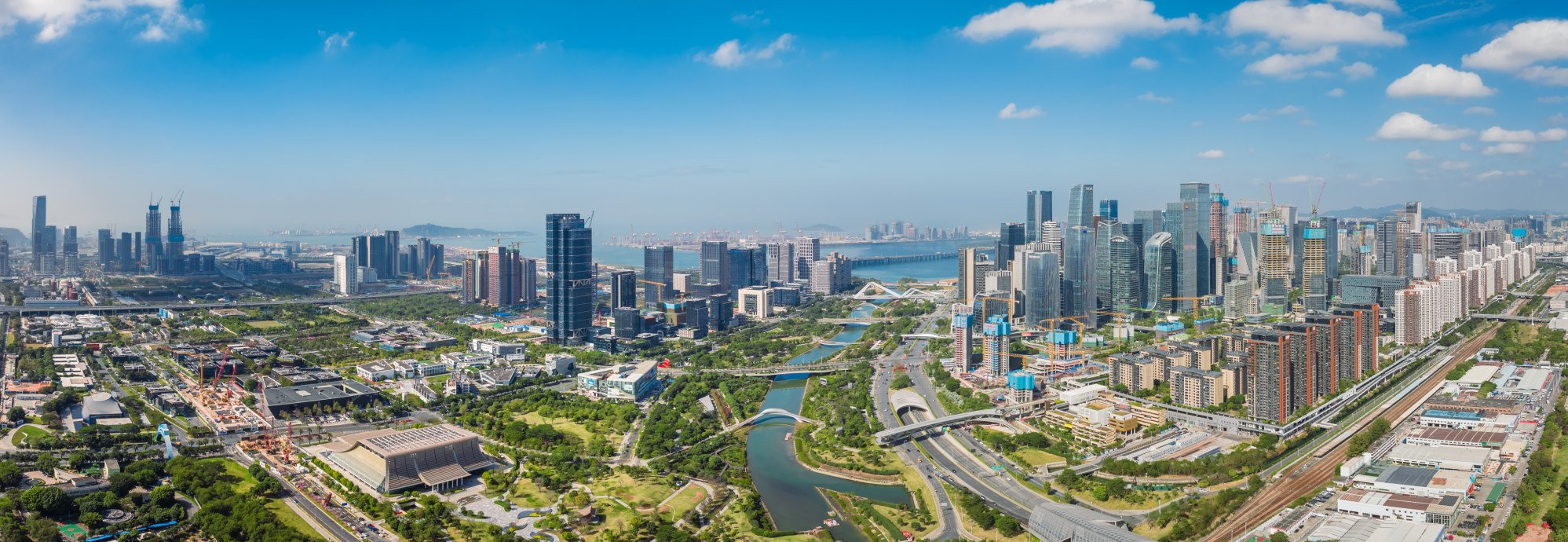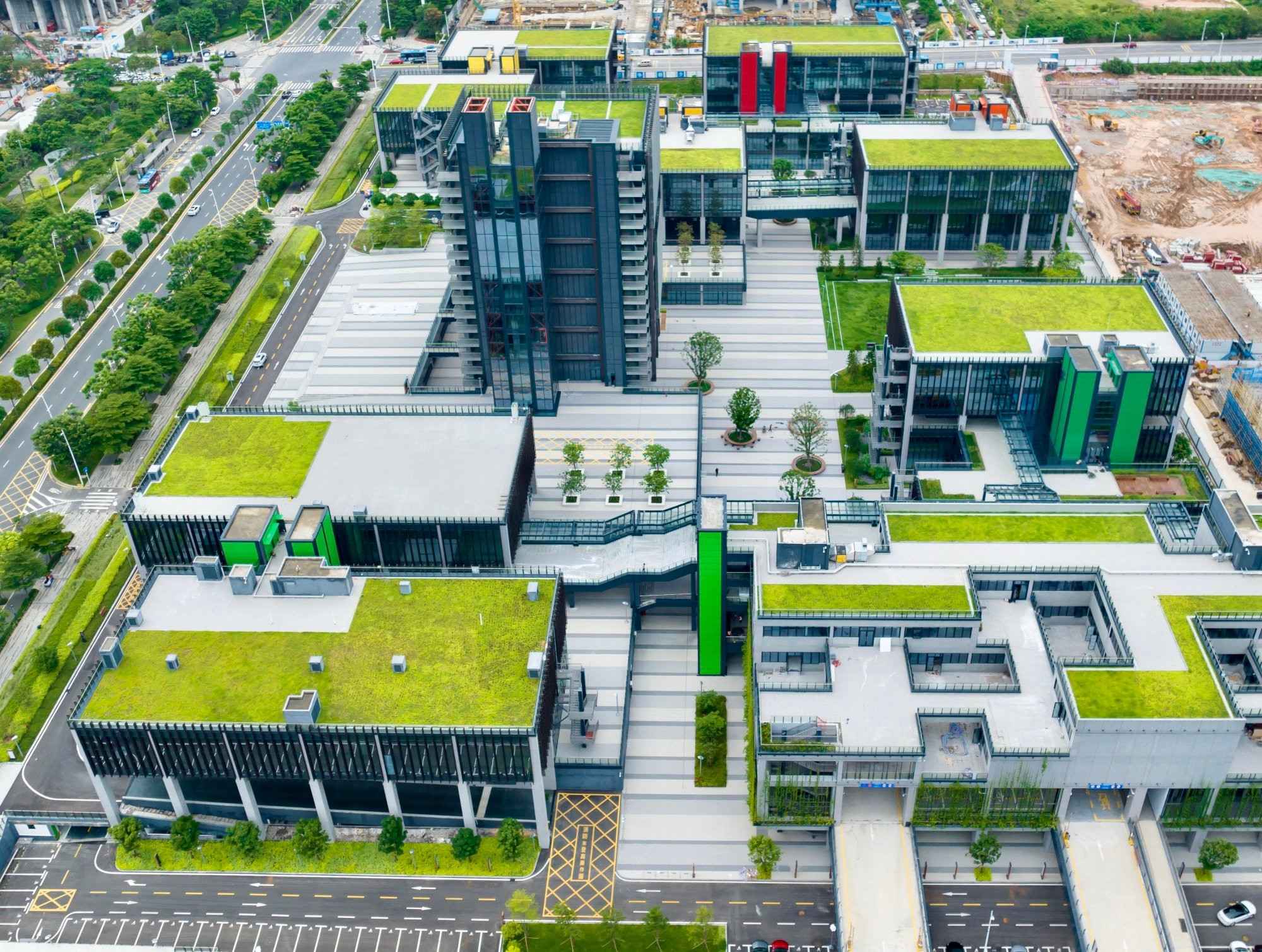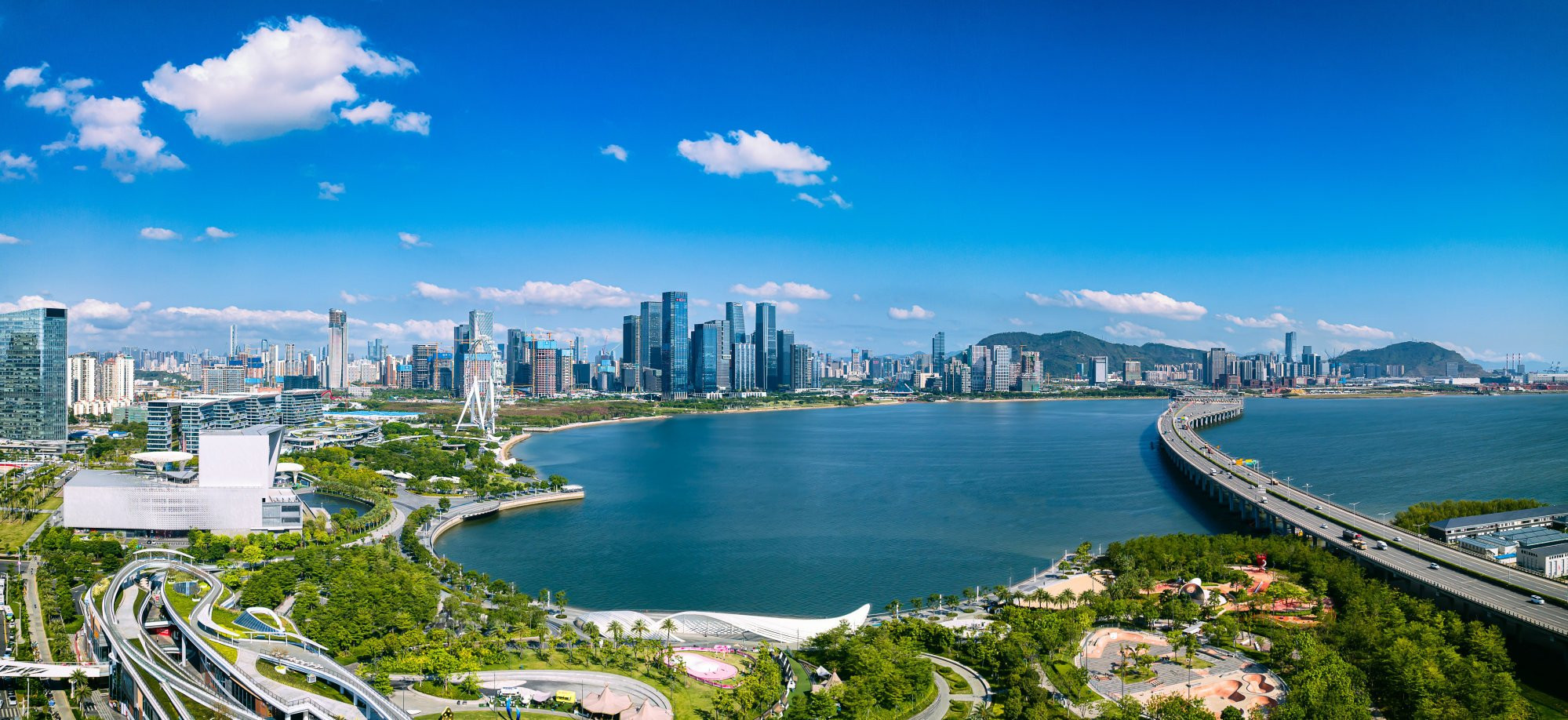On the first day of March, the third council of the Shenzhen Court of International Arbitration (SCIA) in the Qianhai Shenzhen-Hong Kong Modern Service Industry Cooperation Zone, Shenzhen, welcomed two new council members: Roberto Azevêdo, the former director general of the World Trade Organization (WTO), and Sir William Blair, a former British judge.
SCIA reflects the internationalisation of Qianhai, and the zone as over the past three months hosted more than a hundred corporate representatives from 30 countries and regions across four continents, along with 60 diplomatic envoys to China from 40 countries.
The frequent hosting of high-level foreign affairs events in Qianhai not only allows people around the world to witness Chinese modernisation and the newest fruits of its reform and opening-up, but also showcases the progress of high-quality development in the Guangdong-Hong Kong-Macau Greater Bay Area (GBA).
The latest data shows that in 2023, Qianhai achieved a regional GDP of 246.41 billion yuan, a year-on-year increase of 15 per cent. Its fixed asset investment reached 153.6 billion yuan, up 15.4 per cent year on year, and imports and exports totalled 494 billion yuan, up 6.7 per cent year on year. The zone has attracted 151 globally leading service providers, with an average of less than 2.5 days for each to settle, making it one of the fastest-growing, highest-quality and most profitable regions in China.
A business environment on par with Singapore and Hong Kong

In 2023, Qianhai achieved a regional GDP of 246.41 billion yuan, with a year-on-year increase of 15 per cent, becoming one of the fastest-growing regions in China.
Qianhai ranked first in the “2022-2023 China Pilot Free Trade Zone Institutional Innovation Index Report” released by Sun Yat-sen University. Meanwhile, it has been comparable to Singapore and Hong Kong SAR in terms of the business environment, according to a simulation assessment based on World Bank indicators from PwC.
The region has transformed itself from a stretch of mudflats into a modern urban hub in less than 14 years, driven by institutional innovation.
It features favourable tax policies. For example, highly skilled talent and those in urgent need from Hong Kong and Macau SARs, as well as overseas, enjoy certain subsidies, while corporate income tax rates have been lowered to 15 per cent for eligible companies.
Additionally, in the field of legal innovation, Qianhai allows Hong Kong-funded enterprises to resort to Hong Kong law to deal with contract disputes, making it the most inclusive area in the Chinese mainland for Hong Kong and foreign-funded enterprises in this field.
Qianhai continues to progress with a series of measures and regulations, starting with implementation of the plan to comprehensively deepen reform and open up the Qianhai Shenzhen-Hong Kong Modern Service Industry Cooperation Zone, followed by policies such as 30 measures for the financial industry, 18 for customs and 18 for maritime affairs.
New regulations on the protection of investors, rolled out on December 1, 2023, mark another effort to create a high-level institutional opening-up.
Data shows that as of 2023, Qianhai has introduced a total of 835 institutional innovations, with 88 being applied nationwide, covering eight core areas such as system mechanism innovation, investment and trade facilitation, financial and legal openness, as well as reform on talent management.
Preferential policies attract around 10,000 Hong Kong-based enterprises

As the “first stop” and “preferred destination” for Hong Kong youth moving north to Chinese mainland, the Qianhai Shenzhen-Hong Kong Youth Innovation and Entrepreneur Hub has cumulatively incubated 621 Hong Kong teams. Photo: Qianhai Authority
“Qianhai has now become the first choice for Hong Kong-based enterprises to invest in GBA and the Chinese mainland,” said Lu Jinqin, chairman of the Hong Kong Commerce & Industry Associations. He established a platform for the development of small- and medium-sized Hong Kong enterprises in Qianhai to provide comprehensive solutions for Hong Kong residents and companies to work, start businesses and expand their markets in the zone.
As the only Shenzhen-Hong Kong cooperation zone in the country, Qianhai is now only 5km away from Hong Kong’s nearest land area. It has become the most well-known region in the Chinese mainland for Hong Kong residents and enterprises because its rules align with those in Hong Kong, together with comprehensive preferential policies set for Hong Kong.
Over the past year, the Qianhai authority, together with the Financial Services and the Treasury Bureau of Hong Kong and the Commerce and Economic Development Bureau of Hong Kong, jointly issued 18 measures on venture capital investment and 16 measures on intellectual property protection, respectively. A total of 22 types of Hong Kong and Macau professionals such as doctors and tax agents have been allowed to practice in Qianhai after filing for registration.
Shenzhen-Hong Kong entrepreneurship platforms are also thriving. Qianhai Shenzhen-Hong Kong International Financial City introduced 100 new financial institutions, Shenzhen-Hong Kong International Legal Zone is now home to 202 legal institutions, Qianhai International Talent Hub now provides 635 one-stop international talent services, and Qianhai Shenzhen-Hong Kong Youth Innovation and Entrepreneur Hub has incubated a total of 621 Hong Kong teams.
“Qianhai’s policies supporting employment and entrepreneurship for Hong Kong and Macau youth cover the whole process of internship, employment and entrepreneurship, and also extend to their life and residence in Qianhai, with support ranging from 1,000 to millions of yuan,” said Chen Sinuo, a Hong Kong youth and founder of Wenge Technology (Shenzhen) Co., Ltd. After settling in Qianhai in 2023, the company has halved its rental cost.
So far, Qianhai has introduced over 200 preferential policies for Hong Kong. Home to nearly 10,000 Hong Kong-funded enterprises, the zone has attracted US$33.66 billion in actual investment from Hong Kong. By 2025, Qianhai will embrace up to 11,000 Hong Kong-funded enterprises and employ 10,000 Hong Kong residents, while 1,000 professionals from Hong Kong and Macau SARs and overseas will register to practice in the zone.
12 industrial clusters developed to bring in global industries

After the expansion of Qianhai, it now possesses a “top tier” configuration of sea, land, air, rail, and port facilities, with a multi-industry space that has been fully opened up.
Qianhai enjoys a good foundation in the field of the modern service industry. Especially evident since expanding certain areas in 2021, it has been equipped with top-notch facilities, including international airports, ports, exhibition centres and free trade zones, all within an hour’s reach of Hong Kong, Macau and Guangzhou.
The modern service industry contributes to more than half of the zone’s industrial added value. The Overall Development Plan for the Qianhai Shenzhen-Hong Kong Modern Service Industry Cooperation Zone, issued on December 21 last year, outlined six key areas for development, such as deepening financial openness and innovation, boosting exhibition and trade logistics, and accelerating the development of technology services.
In the past two years, Qianhai has been engaged in attracting and nurturing global service providers in eight sectors, such as modern finance, trade logistics and information services.
Meanwhile, Qianhai has also established high-standard clusters together with related industrial policies for venture capital investment, commodities trading, e-commerce, artificial intelligence, supply chains, integrated circuits, shipping services, international consultation and high-end think tanks to attract global high-end resources.
Yang Fan, co-founder of Hong Kong-based artificial intelligence company SenseTime, sees Qianhai as a dynamic hub with a world-leading business environment and policies conducive to innovation, providing fertile ground for enterprise development.
This year, Qianhai aims to intensify investment promotion efforts. It plans to carry out more than 70 investment promotion activities, embrace 50 more global service providers, and introduce 10 new headquarters of Fortune Global 500 companies. The zone strives to achieve a regional GDP growth of more than 12 per cent in 2024, revealed Huang Xiaopeng, deputy director of the Qianhai authority.
By Ye Zhen and Zhang Wei
















